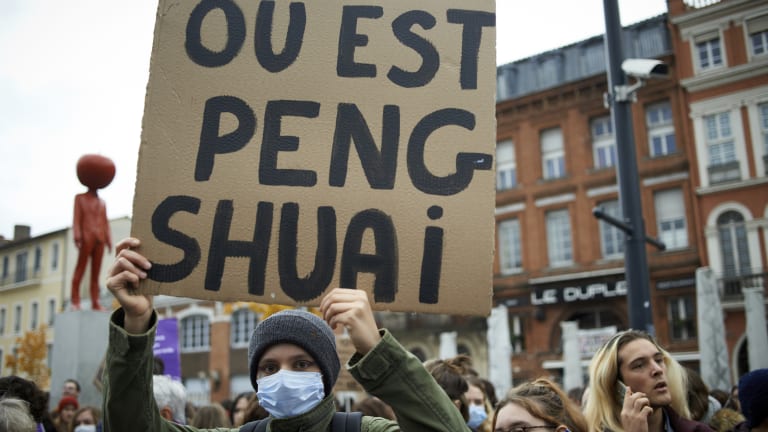#WhereIsPengShuai
By challenging China, Peng Shuai and Steve Simon have kept tennis’s power-defying legacy alive
By Dec 03, 2021#WhereIsPengShuai
Journalist who spoke with Peng Shuai in Beijing says doubts remain
By Feb 08, 2022#WhereIsPengShuai
After Peng Shuai gives controlled interview at Beijing Olympics, WTA remains firm on position regarding her safety
By Feb 07, 2022#WhereIsPengShuai
After backlash, Tennis Australia amends policy to permit "Where Is Peng Shuai?" t-shirts at Australian Open
By Jan 25, 2022#WhereIsPengShuai
Speaking to a reporter in Shanghai, Peng Shuai denies she wrote of being sexually assaulted
By Dec 20, 2021#WhereIsPengShuai
Ashleigh Barty on Peng Shuai: “Someone we all know and respect”
By Dec 05, 2021#WhereIsPengShuai
IOC says it held second video call with Peng Shuai
By Dec 02, 2021#WhereIsPengShuai
WTA to AP: Loss of China events over Peng could go past 2022
By Dec 02, 2021#WhereIsPengShuai
WTA announces intent to suspend all tournaments in China
By Dec 01, 2021#WhereIsPengShuai
When a crisis demanded that the real Steve Simon stand up, he did so—and stood tall
By Nov 29, 2021By challenging China, Peng Shuai and Steve Simon have kept tennis’s power-defying legacy alive
May the seed they’ve planted continue to grow.
Published Dec 03, 2021
Advertising
Advertising

The #WhereIsPengShuai movement was represented at a protest in Toulouse against sexual violence and patriarchy.
© Alain Pitton/NurPhoto